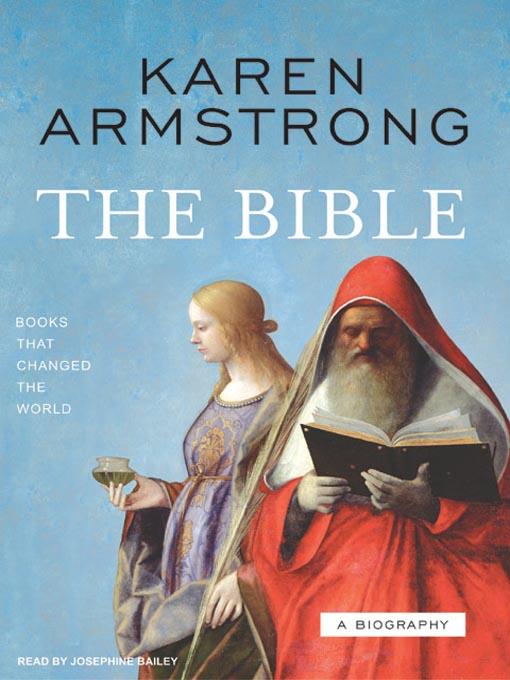
The Bible--A Biography
Books That Changed the World Series, Book 7
فرمت کتاب
audiobook
تاریخ انتشار
2007
نویسنده
Josephine Baileyناشر
Tantor Media, Inc.شابک
9781400173945
کتاب های مرتبط
- اطلاعات
- نقد و بررسی
- دیدگاه کاربران
نقد و بررسی

This latest installment in the Books That Changed the World series portrays the BIBLE as a living organism, examining its development over the centuries and demonstrating how Christian, Jewish, and secular influences are interwoven into the various versions. While the author's reputation for scholarship is evident, this particular effort does not translate well to audio despite Josephine Bailey's competence. Bailey skillfully keeps the text moving, easily handling historical terms and names, but it still sounds like one is listening to a laundry list of names and dates. Perhaps multiple listens might help--as much of the terminology is most likely unfamiliar to the average listener, who would have a far easier experience taking in the information in print. M.H.N. (c) AudioFile 2008, Portland, Maine

August 27, 2007
Of all the “Books That Changed the World”—the recently launched series to which this book belongs—surely the Bible is among the most important. And of all contemporary popularizers of religious history, surely Armstrong is among the bestselling. Who better, then, to recount the history of the Bible in eight short chapters than this former nun and literature professor who relishes huge topics (The History of God
) and panoramic descriptions (The Great Transformation
)? Armstrong not only describes how, when and by whom the Bible was written, she also examines some 2,000 years of biblical interpretation by bishops and rabbis, scholars and mystics, pietists and critics, thus opening up a myriad of exegetical approaches and dispelling any fundamentalist notion that only one view can be correct. Readers unfamiliar with ecclesiastical history may feel overwhelmed by dense chapters that read more like annotated lists than narrative—a hazard of trying to cover so much in so little space. (A glossary helps to anchor the bewildered.) At her best when she pauses long enough to expand on a topic, Armstrong offers intriguing insights on, for example, the allegorical method developed by Origen in the third century and the mystical midrash of the Kabbalists in medieval Spain and Provence.

April 15, 2008
British author and former nun Armstrong ("A Short History of Myth") is one of the best writers on the Bible and contemporary world religions currently being published. Always erudite and accessible, she understands the value of historical precedent, apocrypha, biblical scholarship, and good storytelling. In this work, part of Grove/Atlantic's "Books That Changed the World" series, Armstrong argues that the Bible is one of history's most powerful and valuable books. Reminding listeners that the 66 books in the Bible were passed down orally and then turned into scripture and collected into a single work that became one of the most sacred and debated texts in Christianity, Armstrong offers engaging analysis and commentary. The Bible, written by multiple authors, using various points of view, and most often associated with Christianity, has changed over the course of its history. Different religions, denominations, and sects have taken the text as their own, which has led some to challenge the book's historical accuracy. Armstrong explores change and controversy with rational thinking and genuine respect, and Josephine Bailey's reading is lively and provocative. Recommended for all libraries with large audio collections. [Also available as downloadable audio from Audible.Ed.]Pam Kingsbury, Univ. of North Alabama, Florence
Copyright 2008 Library Journal, LLC Used with permission.

























دیدگاه کاربران